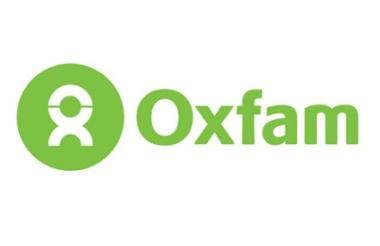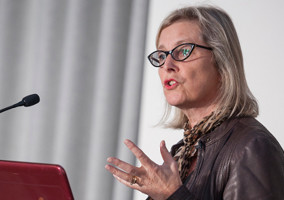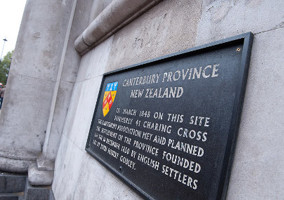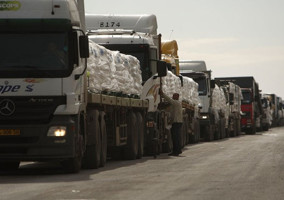Oxfam has restricted its humanitarian work in Iraq due to “heightened security concerns, checkpoints and travel difficulties,” after escalating tensions in the region.
This week there was an Iranian missile attack on US military bases in Iraq, in retaliation to the US killing of the Iranian General Suleimani.
Meanwhile, Islamic Relief's staff are being told to work from home, but Médecins Sans Frontières said its medical teams continue to provide healthcare in Iraq as normal.
Oxfam’s country director in Iraq, Andres Gonzalez Rodriguez, said the charity has suspended work in three locations where it was delivering cash aid to people in need. He said if Oxfam if the suspension lasts for a few weeks, 100,000 of the “most vulnerable people” will be affected.
“Oxfam is one of the few international agencies working in hard-to-reach areas affected by the latest conflict. As far as possible, we will try to keep our humanitarian work going with our partners around the country. However, we have had to relocate some staff and we are keeping all our staff, partners and work under close observation due to the heightened security concerns.”
The charity supports over a million people in Iraq, working with 13 local partner organisations. It works in five governorates in Iraq, specialising in water and sanitation, emergency food, cash and gender programmes and protection work. Oxfam and its partners reach over a million people in Iraq with this aid.
‘The Oxfam office in Irbil is just three kilometres away from where the missile hit’
Oxfam has closed its offices, including in Irbil, and asked staff to work from home and avoid travelling.
Rodriguez said: “The Oxfam office in Irbil is just three kilometres away from where the missile hit the airport. Staff heard the rockets overhead and some saw the impact. Staff in our Ramadi office saw the missile passing over Ramadi city before it hit the Ain al-Asad military base.
“All parties to this conflict are obliged to work hard to de-escalate the crisis and to build peace in order to spare the Middle East region further humanitarian suffering. People who have already suffered decades of war and deprivation will bear the brunt of further conflict and cannot endure another blow. The impacts of another regional conflict on tens of millions of civilians in the Middle East and beyond will be catastrophic and push an overburdened humanitarian system to breaking point.”
Noah Gottschalk, humanitarian policy lead for Oxfam America, said: “We urge the US, Iran and all parties across the region to show restraint, to respect humanitarian law and allow unfettered humanitarian access to those in need, regardless of perceived affiliations. Now is the time for cooler heads to prevail and the work of de-escalation to begin.
“International law imposes a clear obligation on states to protect the lives and safety of civilians. The international community must speak up boldly in defence of these fundamental principles and remind our leaders that it is their responsibility to prevent further human suffering. We hope that in these tense days, leaders recognise that saving lives is more important than saving face.”
Safety of staff and patients is top priority, say International Aid charities
An Islamic Relief spokesperson said: “Our staff in Iraq are being requested to work from home and all employees who are outside Iraq are being instructed to stay outside. Islamic Relief Iraq is advising against all visits to the country until further notice.” It said it could not give a definitive answer on whether any of its work in Iraq would be affected.
A Médecins Sans Frontières spokesperson said: “MSF medical teams continue to provide healthcare in hospitals and clinics across the Baghdad, Diyala, Kirkuk, Ninawa and Dhi Qar governorates of Iraq as per usual. Whilst we have not had to reduce our medical activities, the safety of our staff and patients is our top priority and we continue to closely monitor the evolving context. MSF is one hundred per cent privately funded in Iraq and does not accept donations from any government for our work in the country.”
|
Related Articles












